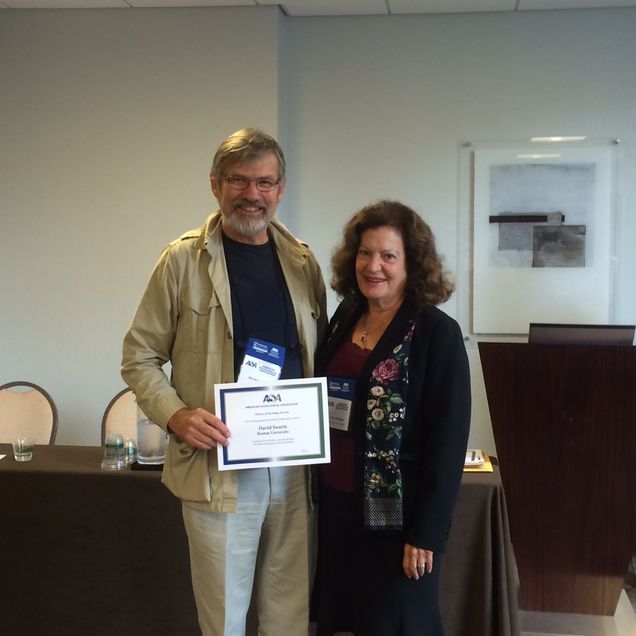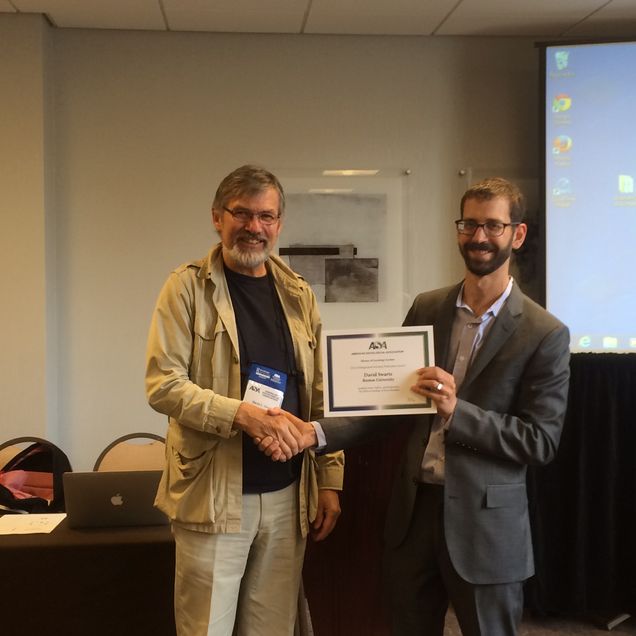Professor Swartz’ “Symbolic Power” Celebrates ASA Publication Award


Professor David Swartz’s SymbolicPower, Politics, and Intellectuals: The Political Sociology of Pierre Bourdieu was awarded as co-winner of the American Sociological Association’s 2014 History of Sociology Section Distinguished Scholarly Publication Award at the ASA Conference in August.
During the presentation ceremony, Dr. Silvia Pedraza, Chair of the Award Committee, had the following to say about Dr. Swartz and Symbolic Power:
“David Swartz is Assistant Professor at Boston University. His major argument in this book is that we should regard Bourdieu not only as a sociologist of culture, where he has clearly made his mark, but also as a sociologist of politics and a political sociologist. This Professor Swartz demon-strates admirably well. The book is tight, very well orga-nized, and very well argued. One simply never has any doubt as to the points being made and we learn how central politics was in Bourdieu’s life.
“Yet, like all books, it also is not flawless. I would have liked the real Bourdieu to have more voice in the book, through his letters, newspaper pieces, and presentations, not just the academic pieces – for Bourdieu to be more a flesh and blood man. Swartz also situates Bourdieu well in the intellectual issues of the times. He also explains well how Bourdieu’s political and sociological choices were the results of the events he lived through (Algeria and the war of independence from colonialism; the 1968 student revolt in Paris; the anti-globalization movement beginning in the late 1990s). On all of these crucial histor-ical and political moments, I would have liked to have heard his voice more than we heard it in the book. I want-ed more detail on the pain of those intellectual and emotional confrontations, on the difficult decisions he must have faced.
“But there is no doubt that Swartz makes us realize that Bourdieu’s contributions to sociology are quite large and, as our contemporary, he particularly speaks to the issues intellectuals confront today. This book makes all of this available to an American audience that does not know it and that, to date, has pigeonholed Bourdieu only as a soci-ologist of culture. Without doubt, he is also a political so-ciologist and should be taught as such, as Swartz will have us do.”
Read more about his award here.